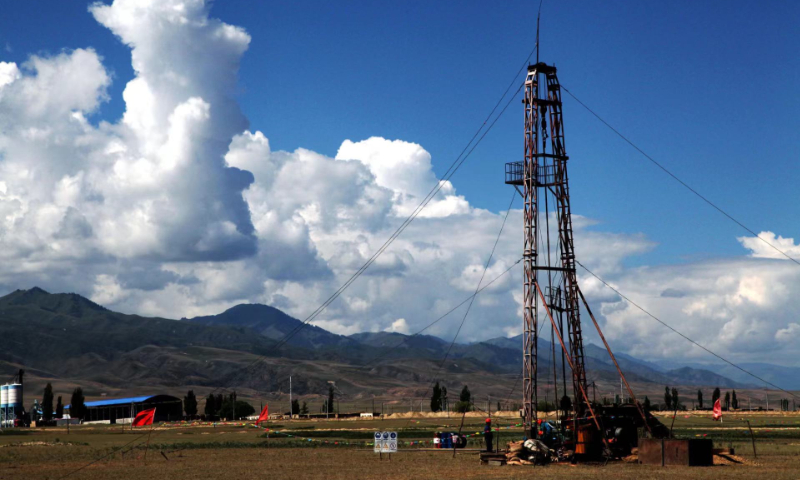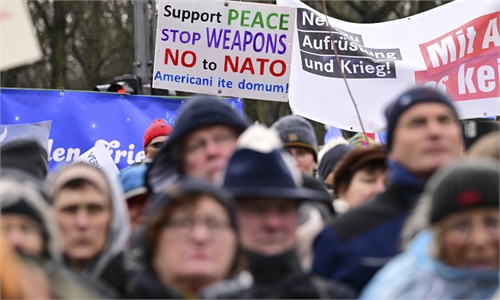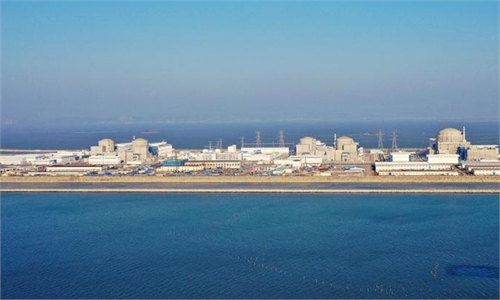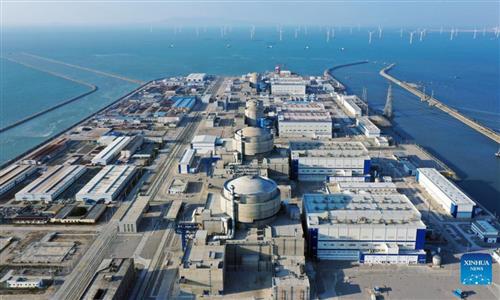
A survey and exploration facility of uranium of China National Nuclear Corporation (CNNC) File photo: Courtesy of CNNC
The military coup in Niger may push up uranium prices in the near future due to reduced supplies, Chinese experts said on Thursday, but the crisis will have little impact on China, which has achieved a breakthrough in uranium exploration.
Niger's Defense and Security Forces said on July 26 that soldiers had overthrown President Mohamed Bazoum, hours after he was allegedly held hostage, the Xinhua News Agency reported.
Uranium is the heaviest element that is used in nuclear power, medicine and defense. As the world shifts toward cleaner energy resources and countries pursue carbon neutrality, the competition for uranium will intensify, experts said.
The coup in the West African country, which is rich in uranium, has created uncertainty over market supply.
According to data from the Chinese Ministry of Commerce, as of 2020, Niger had 420,000 tons of proven uranium reserves, the fifth largest in the world.
Analysts said that uranium prices may rise in the coming weeks if the situation in Niger shows no sign of improvement.
"In the short term, the military coup will lead to shortages and higher prices, but what happens next will depend on the coup's duration," Wang Guoqing, research director at Beijing Lange Steel Information Research Center, told the Global Times on Thursday.
The spot price of uranium rose to $56.25 per pound on July 31, from $56.15 a week earlier, according to an analysis by UxC, a market research firm for the nuclear industry.
Wang noted that the Niger crisis won't affect China's domestic supplies or the use of uranium in the short term.
"China is largely self-sufficient in this metal, and I believe that the country will try to diversify import sources," Wu Chenhui, an independent industry analyst, told the Global Times on Thursday.
In recent years, China vowed to enhance its domestic uranium production capacity and shore up domestic uranium supply security, in a bid to accelerate the improvement of the level of scientific and technological innovation for self-reliance and self-improvement.
Over the past decade, new uranium resources accounted for one third of the total amount identified over the past 68 years of extensive survey and exploration, while 70 percent of the newly discovered resources are fine, extractable resources, said a report published by China Nuclear Geology, a subsidiary of Chinese nuclear giant China National Nuclear Corp (CNNC).
According to the latest assessment, the country has more than 2.8 million tons of uranium resources, meaning domestic supply will be ensured amid global uncertainties.
"Europe may bear the brunt of the crisis in Niger as it faces increasing demand for nuclear energy while it imposed sanctions on Russian oil and natural gas," Wu noted.
Last year, Niger was the second largest supplier of uranium to the EU, accounting for 25.38 percent of its total imports, according to the European Atomic Energy Community.



